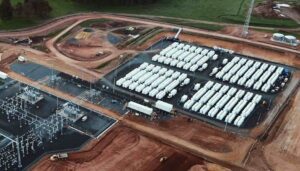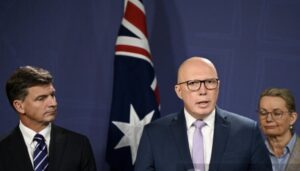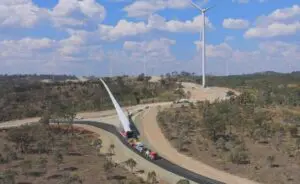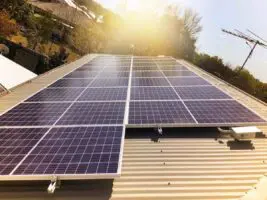Andrew Forrest’s Fortescue Future Industries plans a 1GW solar manufacturing facility in Australia to slash costs and “build green energies at scale” after buying a majority stake in Dutch solar and hydrogen technology group HyET.
The purchase of a 60 per cent stake in HyET is the first concrete move by Forrest and FFI to fulfil his grand vision of rolling out more than one hundred of gigawatts of green hydrogen capacity in Australia and around the world, fuelled by renewables.
Those plans will depend on significant cost reductions in both solar PV and hydrogen electrolyser technology, and HyET is invested in both. Its “Powerfoil” solar technology is described as extremely lightweight, and with a significantly lower levellised cost of energy.
“Green energies need to be available at an industrial, global scale. We don’t have time to wait, we have to act now,” Forrest said in a statement.
“The technologies of the HyET companies will help us reach that tipping point and the world will begin the journey in earnest to become zero-carbon.”
FFI chief executive Julie Shuttleworth said the company had already begun designs for a 1GW Powerfoil solar factory in Australia. It was not immediately clear where this will be located.
“At this scale, we aim to rapidly drive costs down at a greater rate than is achievable with conventional Solar PV technology,” she said. It would be by far the biggest solar module factory ever built in Australia.
Forrest is already a backer, along with fellow billionaire Mike Cannon-Brookes, of the Sun Cable project in the Northern Territory, which proposes the world’s biggest solar farm – up to 20GW – and more than 40GWh of battery storage to supply Singapore and local industry.
His own plans for significant renewable hydrogen capacity in Australia would also require tens of gigawatts of large scale wind and solar, mostly likely in Western Australia. He has reportedly been negotiating land access, but no firm details have emerged.
HyET also has an interesting hydrogen compressor technology that Shuttleworth says will help FFI drive down the costs of green hydrogen.
“FFI’s goal is to become the world’s leading, fully renewable energy and green products company,” she said.
“The addition of HyET Solar and HyET Hydrogen to our portfolio of FFI companies builds on our commitment to develop technologies needed to tackle emissions and global warming.
Not much has been heard of HyET’s Powerfoil technology, but the company claims that its ultra-low weight (0.6 kg/m2, or a small fraction of standard panels) means that it can be installed without expensive supporting frames and structures.
That in turn, it says, will lead to a 30 per cent reduction in the levellised cost of electricity compared to traditional crystalline-Silicon glass panels (c-Si), and means it can also be integrated into building elements.
And, it says, the materials it uses are abundant, largely silicon and aluminium, and will deliver an energy payback in less than one year.
So far, the technology has only been installed in small capacities, including an IKEA rooftop in the Netherlands, fuel stations in Oman and Indonesia, and on a cruise ship operating in the Galapagos Islands (see picture below).
Details of the transaction between FFI and the HyET shareholders were not revealed. The founding partners in HyET – SuperNova NV, and Royal Vopak remain the only other shareholders in both companies.
“We are incredibly pleased to have joined forces with Fortescue Future Industries,” Rombout Swanborn, founder and director of HyET Hydrogen and HyET Solar said in a statement.
“Not only does this enable us to contribute much more effectively to the creation of a renewable energy infrastructure, but now we also can strongly increase the scale of our activities – two important goals since we started up our companies.”











